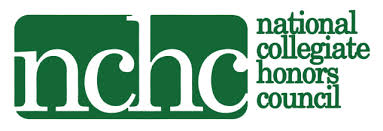“Manuscripts Don’t Burn”: Soviet History through Underground Literature
Seminar - UHON 301
Instructor(s): Renee Faubion
Course Description
While underground literature (known as samizdat, meaning “self-published”) has a three-century history in Russia, under Soviet oppression it blossomed into a potent, varied literary tradition. Despite the threat of imprisonment, courageous Soviet citizens avidly copied and circulated manuscripts of officially forbidden texts; as a result, although samizdat was illegal, many Soviets knew this underground literature well. As might be expected, samizdat includes grim works detailing systemic injustice, such as Eugenia Ginzburg’s memoir of her decades in a labor camp. But the literature of the Soviet underground wasn’t all realistic and gloomy; Vladimir Voinovich’s novel The Life and Extraordinary Adventures of Private Ivan Chonkin, for example, offers a pointed but comic challenge to the Soviet system. And Mikhail Bulgakov’s comic masterpiece, The Master and Margarita, is widely recognized as one of the greatest novels of the twentieth century. The texts covered in this class include some of Russia’s most distinguished and diverse literary achievements; they are valuable not only because of the glimpses they offer into a closed society but also because they are rich, rewarding works of art. (No knowledge of Russian is needed for this course; all works will be read in translation. For further information, please email Dr. Faubion at sanren@unm.edu.)
Texts
Yevgeny Zamyatin, We
Mikhail Bulgakov, The Master and Margarita (Please be sure to purchase either the translation by Burgin and O’Connor or the one by Pevear and Volokhonsky)
Mikhail Bulgakov, Heart of a Dog
Eugenia Ginzburg, Journey into the Whirlwind
Vladimir Voinovich, The Private Life and Extraordinary Adventures of Private Ivan Chonkin
We will also read poetry by Anna Akhmatova; those poems will be supplied by the instructor.
Requirements
A research project which may (at the student’s discretion) include a non-traditional component, such as a work of art or a story; a presentation on an element of Soviet history or culture; a short essay on historical context for the student’s research project; careful preparation for and respectful, engaged participation in class discussion
About the Instructor(s): Renee Faubion
After receiving degrees in Russian from Trinity University and the University of Kansas, Renée Faubion earned a second M.A. and a Ph.D. in English at UNM. She is particularly interested in how cultures use literature to construct knowledge and notions of truth. Renée has published on H.D. and Tim O’Brienm and has won four awards for excellence in teaching.



Social Media
For news, information, prizes and more fun stuff follow us on our social media!
Honors College Resources